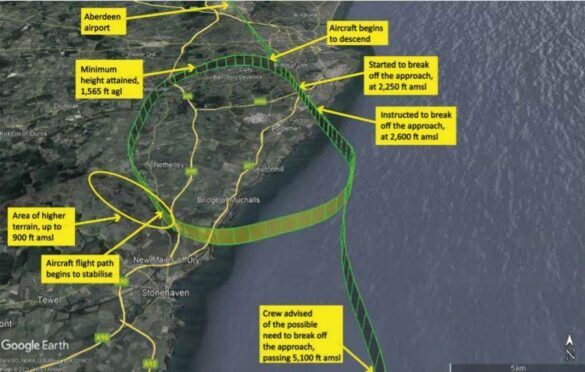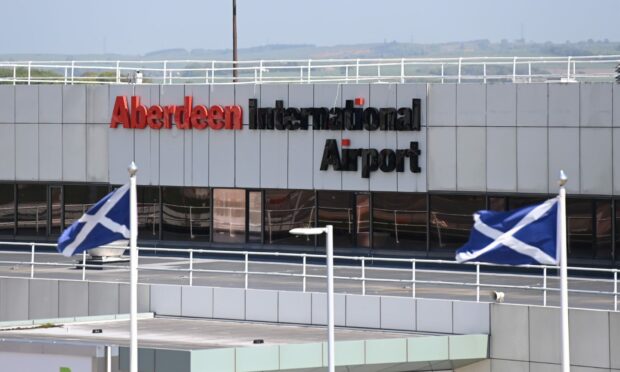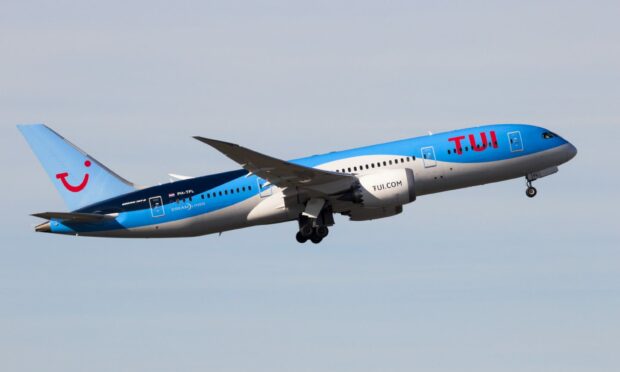Investigators believe a lack of flying time for pilots during the Covid pandemic may have contributed to a “serious incident” while a Tui flight was trying to land at Aberdeen Airport.
The preceding 18 months before the September 11 event had been devastating for the aviation industry due to the effect of the pandemic.
Now investigators from the Air Accidents Investigation Branch (AAIB) believes the prolonged break may have contributed to the Boeing 737-800 unexpectedly descending while arriving in the north-east from Palma.
While the pilot had flown 10 flights in the previous month, it was only the fourth flight in nearly 11 months for the co-pilot.
The AAIB has highlighted the incident to highlight the possible link between extended periods without flying and crews “performing below their normal standard” when returning – but has stressed its investigation had not established a link in the Aberdeen case.
Tui has stressed all its training exceeds industry requirements and its crew undertake regular refresher training – adding the safety of the aircraft was assured through the flight.
What happened during Tui flight into Aberdeen?
The Tui Boeing 737-800 flight was arriving at Aberdeen Airport from Palma on September 11 with 67 passengers and six crew at the time of, what investigators have called, the “serious incident”.
At about 12.35pm, air traffic control said there was a possibility the flight may have to abort its approach to Dyce because a search and rescue helicopter may have to take off.

At 2,600ft the plane was informed by radar to break off its approach and climb to 3,000ft while turning away from Aberdeen and looping back to the airport – a manoeuvre known as a “go-around”.
However, as the aircraft approached the required altitude it began to descend again “unexpectedly”.
The plane dropped to a minimum height of 1,780ft at a rate that peaked at 3,100ft per minute before the climb was re-established.
Once back at 3,000ft the cockpit crew re-established the autopilot and the plane landed safely in Aberdeen after completing the rest of the flight with no incident. There were no injuries on board.
Is there a link between Aberdeen Tui incident and prolonged breaks?
The AAIB investigation has raised awareness of the incident before it has published its final findings highlight the risk of airline pilots returning from prolonged breaks.
While not establishing a firm link in the Aberdeen case, investigators say a link is “clearly a possibility”.
The special bulletin report stressed that both the pilot and co-pilot had completed numerous simulator sessions during the previous 18 months to retain recent flight experience.
However, it has warned that it can be “difficult” for simulators to replicate moments of high workload from air traffic control instructions, poor weather, background communication or the presence of other aircraft in the area.
The report adds: “The safety benefits of simulator training are well established.
“However, the real-world environment creates different demands on crews, and it is possible that this event illustrates that lack of recent exposure to the real-world environment can erode crews’ capacity to deal effectively with those challenges.
“Regulators have been concerned that pilots returning to the flight deck following extended periods without flying could be at risk of performing below their normal standard during their first few flights.
“Although this investigation has not established a link between this event and a lack of line flying, this special bulletin is published for awareness and because a link is clearly one possibility.”
Tui has stressed it has worked with the AAIB in preparation of its investigation and will continue to do so until a final report is published.
A spokeswoman said: “The health and safety of our customers and crew is always our primary concern and we would like to reassure all customers and crew that the safety of the aircraft was assured throughout this flight.
“We provide training that exceeds all regulatory requirements, this includes the additional refresher and recency training completed by all pilots prior to flights being undertaken.
“The industry has faced unique circumstances with the grounding of many planes and crew due to the Covid-19 restrictions.”
The AAIB has not made any specific recommendations at this stage. A final report will be published in due course.

